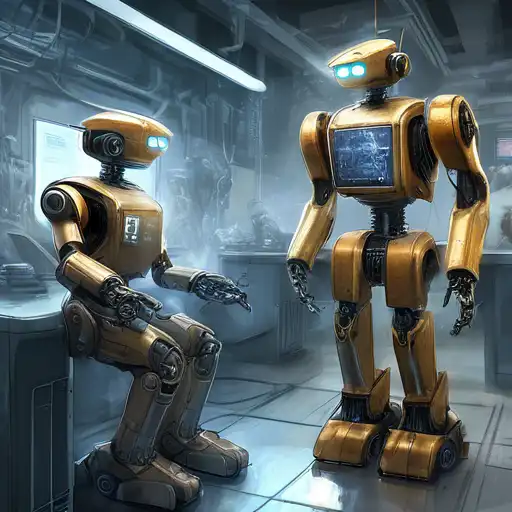Introduction to Autonomous Robots and Ethics
The advent of autonomous robots has ushered in a new era of technological advancement, raising pivotal questions about the ethical implications of their use. As these self-operating machines become increasingly integrated into various sectors, from healthcare to military, the debate around their moral and ethical boundaries intensifies.
The Core Ethical Dilemmas
Autonomous robots, powered by artificial intelligence, present a unique set of ethical challenges. These include issues of accountability, privacy, and the potential for harm. Who is responsible when an autonomous robot makes a decision that leads to negative consequences? How do we ensure these machines respect individual privacy? These are just a few of the questions that ethicists and technologists are grappling with.
Accountability and Responsibility
One of the most pressing ethical concerns is determining accountability in the event of a malfunction or unintended action by an autonomous robot. Unlike traditional machines, autonomous robots can make decisions without human intervention, complicating the attribution of responsibility.
Privacy Concerns
With the ability to collect, process, and store vast amounts of data, autonomous robots pose significant privacy risks. Ensuring that these machines adhere to strict data protection standards is crucial to safeguarding individual privacy.
Ethical Frameworks for Autonomous Robots
To address these ethical dilemmas, several frameworks have been proposed. These include the implementation of ethical guidelines for AI development, the establishment of regulatory bodies, and the integration of moral decision-making algorithms into robots.
Implementing Ethical Guidelines
Developing comprehensive ethical guidelines for the creation and use of autonomous robots is essential. These guidelines should address issues such as fairness, transparency, and the prevention of harm.
Regulatory Oversight
The formation of regulatory bodies to oversee the development and deployment of autonomous robots can help ensure that ethical standards are upheld. These bodies would be responsible for monitoring compliance and addressing violations.
The Future of Autonomous Robots and Ethics
As technology continues to evolve, so too will the ethical considerations surrounding autonomous robots. It is imperative that we continue to engage in open dialogue and collaborative efforts to navigate the moral landscape of these advanced machines.
For further reading on the intersection of technology and ethics, explore our Technology and Society section.
Collaborative Efforts for Ethical Solutions
The development of ethical autonomous robots requires the collaboration of technologists, ethicists, policymakers, and the public. By working together, we can ensure that these machines serve the greater good while respecting ethical boundaries.
In conclusion, the ethics of autonomous robots is a complex and evolving field. As we stand on the brink of a new technological frontier, it is our collective responsibility to ensure that these advancements are guided by strong ethical principles. For more insights into the future of technology, visit our Future Technology page.
